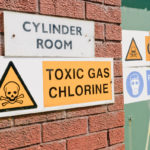Recent Blog Posts

Third-Party Insurer Obligated to Defend Despite Notice Delay and Lead Exclusion
In a case where both the insured and insurer were late in providing notice, the First Department of the New York Appellate Division concluded that the insured had a stronger argument. The court ruled that, despite several potential grounds for disclaiming coverage, the insurer was obligated to defend the additional insured on a worker’s… Read More »

Claim for Lead Exposure Permitted by Appellate Division to Proceed
The First Department of the New York Appellate Division has recently issued a decision in a claim for damages related to alleged lead poisoning. The judges upheld the trial court’s decision denying the defendants’ motion to dismiss the plaintiff’s claims, permitting the claim to move forward toward trial. Learn more about their decision and… Read More »

Court Certifies Class Action Based on PFOA Exposure
For the first time, a New York Superior Court has certified a class of plaintiffs in a lawsuit based on medical monitoring and groundwater contamination related to perfluorooctanoic acid, or PFOA. Learn more about PFOA exposure and the case below. If you have further questions, contact an experienced New York toxic tort defense attorney…. Read More »

Department of Environmental Conservation Updates Regulations on SEQR
On June 28, 2018, New York’s Department of Environmental Conservation (DEC) announced updates to regulations regarding the State Environmental Quality Review (SEQR). These changes will make a number of types of green building and retrofitting projects easier to complete, but they will also increase review requirements on certain residential development projects or projects with… Read More »

Second Lawsuit for Assigned Bad Faith Claim Not Barred
In a recent decision issued by the New York Appellate Division’s Fourth Department, the court affirmed the right of an injured party to bring a second claim against an insurer for disclaiming coverage in bad faith after their direct action had concluded. Read on to learn more about the case, and contact a seasoned… Read More »

CSX Faces Lawsuits from Workers Based on Benzene Poisoning
CSX, the country’s third-largest rail company, is now facing a number of lawsuits filed by or on behalf of former employees who claim that their exposure to various chemicals while working for the company caused their cancer. These claims, some of which are based on exposure beginning in the late 1960s, may face substantial… Read More »

Claim for Injuries Caused by Release of Chlorine Gas Barred by Absolute Pollution Exclusion
In a recent case before a federal judge in the Northern District of New York, an insured claimed that its insurer breached its contract for coverage under its general liability policy by failing to cover injuries received from a release of chlorine gas. The court ruled in favor of the insurer, finding that the… Read More »

New York’s Highest Court Rules on When a Party Is Considered an Additional Insured Party
The Court of Appeals, New York’s highest state court, has recently settled the question of when an agreement to classify a party as an “additional insured” under a New York liability policy will be considered enforceable. The decision could have particular significance for subcontractors, general contractors, and/or property owners who may believe they have… Read More »

New York Supreme Court Finds Evidence of Examination Using Diffusion Tensor Imaging Inadmissible
A New York trial court has recently issued an opinion regarding a plaintiff’s right to use evidence of test results in court, where the means of testing is a developing technology that has not yet been widely adopted. The Suffolk County Supreme Court, relying on the standards established in Frye v. United States and… Read More »

Retail Tenant’s Claims for Toxic Exposure Dismissed for Failure to Show Causation
The Third Department of the New York Appellate Division (Albany) recently considered the claims of a former tenant in a shopping plaza against the property owner. The Appellate Division rejected her allegations that she suffered physical injury and loss of income due to the property’s problematic sewage system. Read on to learn more about… Read More »
